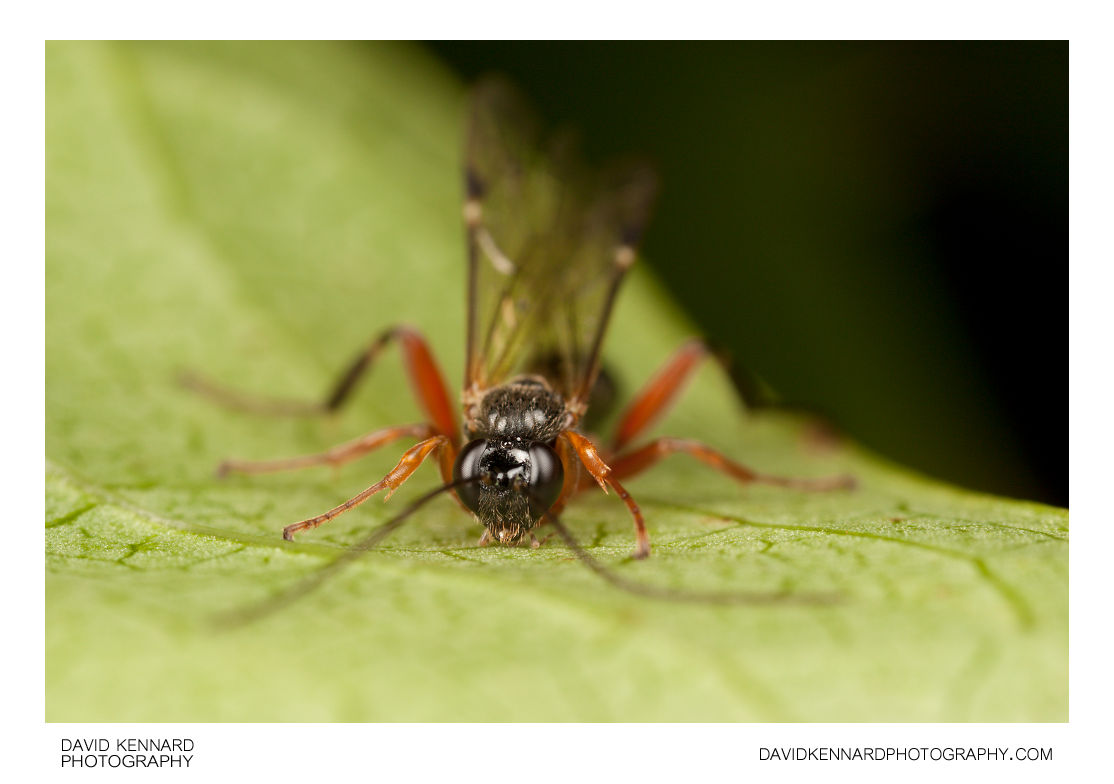Female Ichneumon wasp

Description
- Title:
- Female Ichneumon wasp
- Caption / Description:
-
Ichneumonidae is a family within the insect order Hymenoptera. Insects in this family are commonly called ichneumon wasps. Less exact terms are ichneumon flies (they are not closely related to true flies), or scorpion wasps due to the extreme lengthening and curving of the abdomen (scorpions are not insects).
Simply but ambiguously these insects are commonly called "ichneumons", which is also a term for the Egyptian Mongoose (Herpestes ichneumon); ichneumonids is often encountered as a less ambiguous alternative. Ichneumon wasps are important parasitoids of other insects. Common hosts are larvae and pupae of Coleoptera, Hymenoptera, and Lepidoptera.
There are over 60,000 species worldwide, and approximately 3,000 in North America - more than any other Hymenoptera family. The distribution of Ichneumonidae is one of the most notable exceptions to the common latitudinal gradient in species diversity because it shows greater speciation at high latitudes than at low latitudes.
Ichneumon wasps differ from typical wasps, which sting in defense (Aculeata: Vespoidea and Apoidea), in that the antennae have more segments; typically 16 or more, whereas the others have 13 or fewer. An ichneumon wasp's abdomen is characteristically very elongated, unlike in their relatives the braconids. This lengthened section may also be segmented.
Female ichneumon wasps frequently exhibit an ovipositor longer than their body. Ovipositors and stingers are homologous structures; some Ichneumons inject venom along with the egg, but they do not use the ovipositor as a stinger, per se, except in the subfamily Ophioninae. Stingers in aculeate Hymenoptera - which like Ichneumonidae belong to the Apocrita - are used exclusively for defense; they cannot be used as egg-laying equipment. Males do not possess stingers or ovipositors in either lineage.
Description taken from Wikipedia: http://en.wikipedia.org/wiki/Ichneumonidae
- Tags / Keywords:
-
- Biota
- Life
- Vitae
- Eukaryota
- Animalia
- Animals
- Arthropoda
- Arthropods
- Insecta
- Insects
- Hymenoptera
- Female
- Ichneumonidae
- Ichneumon wasps
- Ovipositor
Admin
- Date Original Photo Taken:
- Original File Name:
- _MG_5089.CR2
- Event:
- Rating:
- Date this image added/last updated on website:
- Original File Dimensions:
- 3828px x 2552px
- File Type:
- JPEG
- Color Mode:
- RGB
- Original Image Color Profile:
- Adobe RGB (1998)
Location
- Location Created:
-
- Sublocation:
- City:
- Market Harborough
- Province/State:
- Leicestershire
- Country:
- United Kingdom
- World Region:
- Europe
- Geo-location:
Rights
- Copyright Status:
- Copyrighted
- Licensing Status:
- Rights Managed
- Available for Editorial Use:
- Yes
- Available for Commercial Use:
- Yes
- Copyright Notice:
- © 2010 Dave Kennard
Camera Data
- Date Digital Resource was created:
- Shutter speed:
- 1⁄200 s
- Aperture:
- f/8
- Camera Model:
- Canon EOS 450D
- ISO:
- 100
- Exposure Compensation:
- 0
- Focal Length:
- 65mm
- Focal Length (35mm equiv.):
- Metering Mode:
- Multi-segment
- Flash:
- On, Fired
- Exposure Mode:
- Manual
- White Balance:
- Manual
- Light Source:
- Exposure Program:
- Manual
Additional shooting metadata
- Lens:
- Canon MP-E 65mm F2.8 1-5x Macro
- Filters used:
- Additional Optics used:
- Setup:
- Handheld
Canon MT-24EX Macro Twin Flash with home-made concave diffusers
Post Processing
- Image Modified:
- Software used:
-
- Adobe Camera RAW
- Post Processing:
Straightened in ACR
